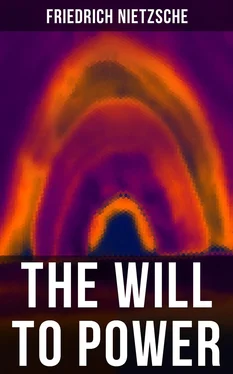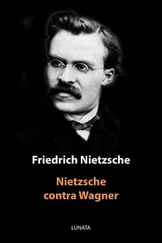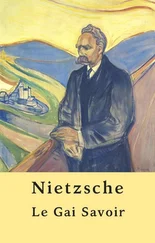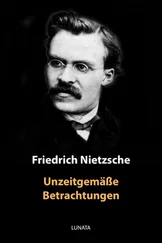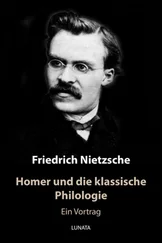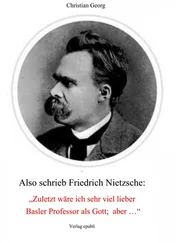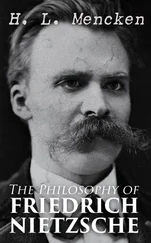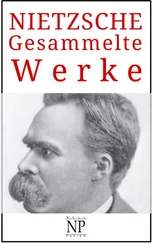The holy lie, therefore, applies principally to the purpose of an action (the natural purpose, reason, is made to vanish: a moral purpose, the observance of some law, a service to God, seems to be the purpose): to the consequence of an action (the natural consequence is interpreted as something supernatural, and, in order to be on surer ground, other incontrollable and supernatural consequences are foretold).
In this way the concepts good and evil are created, and seem quite divorced from the natural concepts: "useful," "harmful," "life-promoting," "life-retarding,"—indeed, inasmuch as another life is imagined, the former concepts may even be antagonistic to Nature's concepts of good and evil. In this way, the proverbial concept "conscience" is created: an inner voice, which, though it makes itself heard in regard to every action, does not measure the worth of that action according to its results, but according to its conformity or non-conformity to the "law."
The holy lie therefore invented: (1) a god who punishes and rewards, who recognises and carefully observes the law-book of the priests, and who is particular about sending them into the world as his mouthpieces and plenipotentiaries; (2) an After Life, in which, alone, the great penal machine is supposed to be active—to this end the immortality of the soul was invented; (3) a conscience in man, understood as the knowledge that good and evil are permanent values—that God himself speaks through it, whenever its counsels are in conformity with priestly precepts; (4) Morality as the denial of all natural processes, as the subjection of all phenomena to a moral order, as the interpretation of all phenomena as the effects of a moral order of things (that is to say, the concept of punishment and reward), as the only power and only creator of all transformations; (5) Truths given, revealed, and identical with the teaching of the priests: as the condition to all salvation and happiness in this and the next world.
In short : what is the price paid for the improvement supposed to be due to morality?—The unhinging of reason, the reduction of all motives to fear and hope (punishment and reward); dependence upon the tutelage of priests, and upon a formulary exactitude which is supposed to express a divine will; the implantation of a "conscience" which establishes a false science in the place of experience and experiment: as though all one had to do or had not to do were predetermined—a kind of contraction of the seeking and striving spirit;— in short : the worst mutilation of man that can be imagined, and it is pretended that "the good man" is the result.
Practically speaking, all reason, the whole heritage of intelligence, subtlety, and caution, the first condition of the priestly canon, is arbitrarily reduced, when it is too late, to a simple mechanical process: conformity with the law becomes a purpose in itself, it is the highest purpose; Life no longer contains any problems ;—the whole conception of the world is polluted by the notion of punishment ; —Life itself, owing to the fact that the priests life is upheld as the non plus ultra of perfection, is transformed into a denial and pollution of life;—the concept "God" represents an aversion to Life, and even a criticism and a contemning of it. Truth is transformed in the mind, into priestly prevarication; the striving after truth, into the study of the Scriptures, into the way to become a theologian.
142.
A criticism of the Law-Book of Manu. —The whole book is founded upon the holy lie. Was it the well-being of humanity that inspired the whole of this system? Was this kind of man, who believes in the interested nature of every action, interested or not interested in the success of this system? The desire to improve mankind—whence comes the inspiration to this feeling? Whence is the concept improvement taken?
We find a class of men, the sacerdotal class, who consider themselves the standard pattern, the highest example and most perfect expression of the type man. The notion of "improving" mankind, to this class of men, means to make mankind like themselves. They believe in their own superiority, they will be superior in practice: the cause of the holy lie is The Will to Power....
Establishment of the dominion: to this end, ideas which place a non plus ultra of power with the priesthood are made to prevail. Power acquired by lying was the result of the recognition of the fact that it was not already possessed physically, in a military form.... Lying as a supplement to power—this is a new concept of "truth."
It is a mistake to presuppose unconscious and innocent development in this quarter—a sort of self-deception. Fanatics are not the discoverers of such exhaustive systems of oppression.... Cold-blooded reflection must have been at work here; the same sort of reflection which Plato showed when he worked out his "State"—"One must desire the means when one desires the end." Concerning this political maxim, all legislators have always been quite clear.
We possess the classical model, and it is specifically Arian: we can therefore hold the mostgifted and most reflective type of man responsible for the most systematic lie that has ever been told.... Everywhere almost the lie was copied, and thus Avian influence corrupted the world....
143.
Much is said to-day about the Semitic spirit of the New Testament : but the thing referred to is merely priestcraft,—and in the purest example of an Arian law-book, in Manu, this kind of "Semitic spirit"—that is to say, Sacerdotalism, is worse than anywhere else.
The development of the Jewish hierarchy is not original: they learnt the scheme in Babylon—it is Arian. When, later on, the same thing became dominant in Europe, under the preponderance of Germanic blood, this was in conformity to the spirit of the ruling race : a striking case of atavism. The Germanic middle ages aimed at a revival of the Arian order of castes .
Mohammedanism in its turn learned from Christianity the use of a "Beyond" as an instrument of punishment.
The scheme of a permanent community, with priests at its head—this oldest product of Asia's great culture in the domain of organisation— naturally provoked reflection and imitation in every way.—Plato is an example of this, but above all, the Egyptians.
144.
Moralities and religions are the principal means by which one can modify men into whatever one ; provided one is possessed of an overflow of creative power, and can cause one's will to prevail over long periods of time.
145.
If one wish to see an affirmative Arian religion which is the product of a ruling class, one should read the law-book of Manu. (The deification of the feeling of power in the Brahmin: it is interesting to note that it originated in the warrior-caste, and was later transferred to the priests.)
If one wish to see an affirmative religion of the Semitic order, which is the product of the ruling class, one should read the Koran or the earlier portions of the Old Testament. ( Mohammedanism, as a religion for men, has profound contempt for the sentimentality and prevarication of Christianity, ... which, according to Mohammedans, is a woman's religion.)
If one wish to see a negative religion of the Semitic order, which is the product of the oppressed class, one should read the New Testament (which, according to Indian and Arian points of view, is a religion for the Chandala).
Читать дальше
